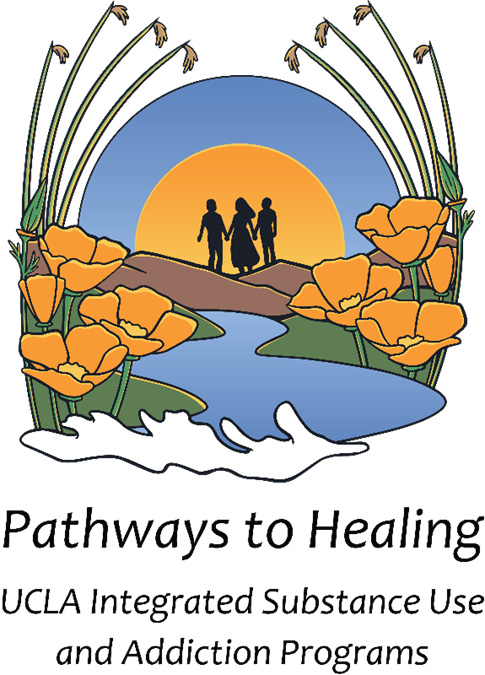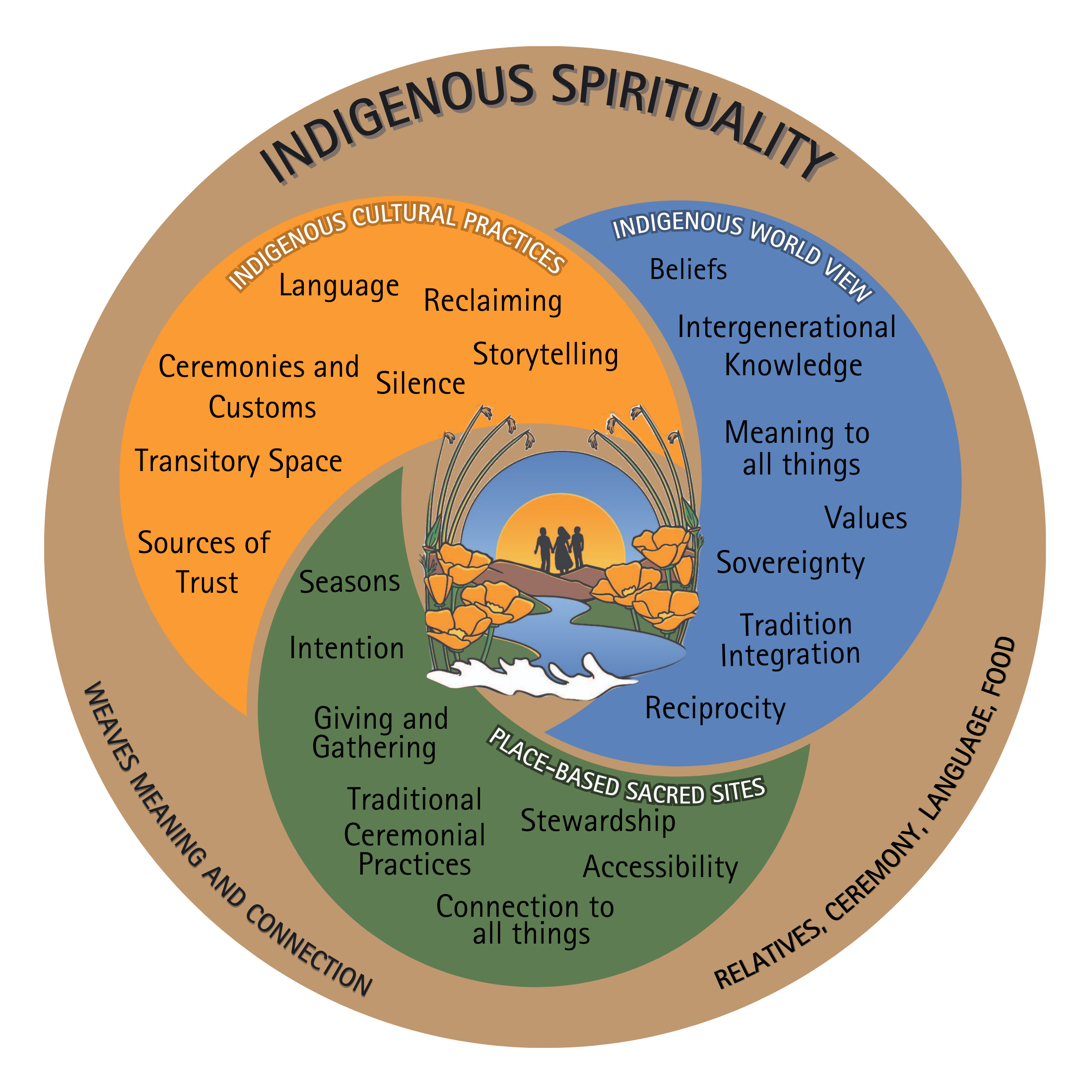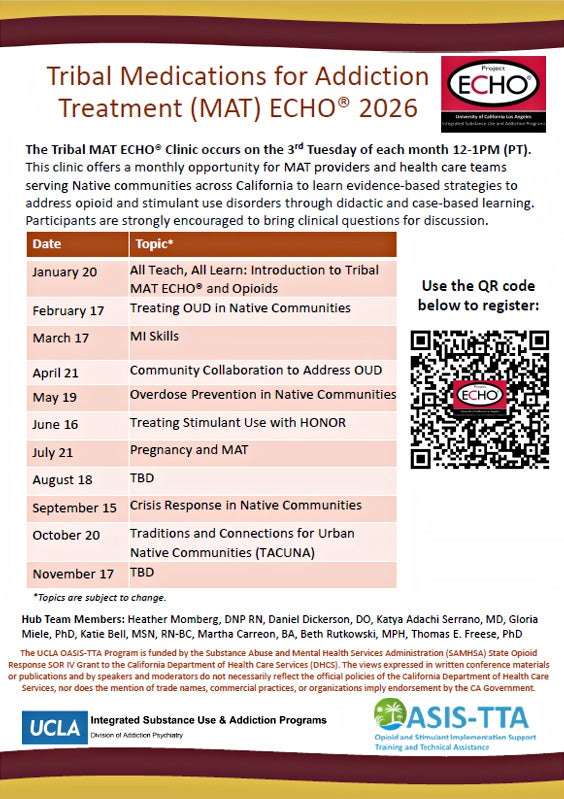
Pathways to Healing
UCLA ISAP's Pathways to Healing (PaTH) program is comprised of resources specifically for providers who are addressing the opioid, stimulant, and suicide crises in California's native communities. Programs include skills-based trainings, case-based learning, and collaboration with partners throughout the state.
Training programs include in person and online learning opportunities for Tribal, Urban Indian, community-based behavioral health treatment providers to build capacity to provide evidence-based treatment for opioid and stimulant use disorder in Native communities. In person events include skills-based learning and opportunities to engage with clinicians and community members across the state.
Continuing Education (CE) is offered at no cost.
Tribal MAT ECHO
Project ECHO® (Enhancing Community Health Care Outcomes) is a web-based, video-conferencing platform designed to provide case-based learning opportunities and increase workforce capacity to offer best practice specialty care. The monthly Tribal Medications for Addiction Treatment (TMAT) ECHO® clinic is an opportunity for MAT providers and health care teams serving Native communities across California to learn evidence-based practices to treat people with opioid, stimulant, and other substance use disorders.
Cultural Guideposts of Health. In collaboration with a coalition of traditional healers, knowledge keepers, community members, and clinicians throughout California, UCLA ISAP developed a model and evaluation framework toolkit that AI/AN-serving organizations throughout California can adapt to their specific community contexts, ultimately contributing to more effective, culturally responsive crisis intervention systems that recognize culture not merely as a factor in health, but as health itself.

This evaluation framework is based on a Culture as Health model (Yamane and Helm, 2022). Materials are available below.
- Cultural Guideposts of Health Overview Document
- Cultural Guideposts of Health Tri-Fold
- Cultural Guideposts of Health Reflection Guide
For further information, please contact Francesca Villarreal, MSW, MBA, Tribal Opioid Response Technology Transfer Specialist: FVillarreal@mednet.ucla.edu
Receive weekly updates on upcoming trainings, funding opportunities, and community events on our list serv
Substance Use Support Alliance for Tribal and Urban Indians – Kauffman and Associates, Inc.
Resources to Address the Opioid Epidemic – California Consortium for Urban Indian Health
California Rural Indian Health Board (CRIHB) Opioid Response Projects
Opioid Response Network – Free training and technical assistance (TTA) related to addressing opioid and stimulant use. Indigenous consultants available for TTA requests.

